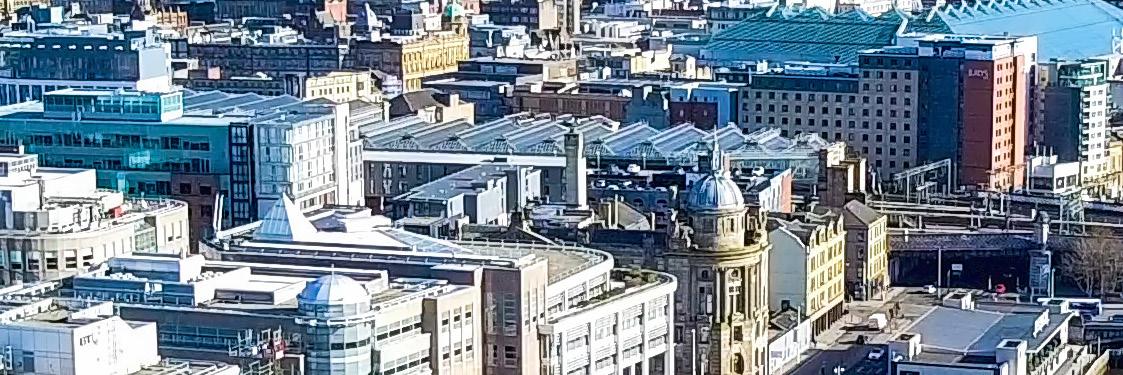
3 minute read
Project 1000: Tackling Bristol’s Housing Crisis Changes
by Chelsea Bailey
Bristol City Council’s Project 1000 Affordable Housing Delivery Plan 2022-2025 outlines how the council will meet its ambition to deliver 1000 new affordable homes annually by 2024. With over 16,000 applicants currently on Bristol City Council’s Housing Register, and an estimated 22,261 new affordable homes needed in Bristol over the next 20 years, the council’s priority for housing delivery remains the provision of affordable, rented homes.
Advertisement
It sets out how the council will speed up the delivery of affordable homes to meet its target and shows how the council aims to tackle the climate emergency while building sustainable, balanced communities.
There is no singular solution to tackling the housing crisis
Housing Industry Leaders spoke to Councillor Tom Renhard, Cabinet Member, Housing Delivery & Homes, at Bristol City Council about Project 1000. He explained that there is not one silver bullet to tackling the housing crisis in Bristol and that to do so: “It is going to take multiple routes, partnerships, and investment.”
These routes include direct delivery through the Housing Revenue Account and Goram Homes.
In addition to this, through other affordable housing provider delivery, market delivery, and land disposal by the targeted release to Registered Providers, community groups and other partners.
One of the projects that the council is working on is the Romney House, Lockleaze project. This sees Goram Homes, in partnership with Vistry Group, building 268 new, high-quality homes at Romney House, a brownfield site in north Bristol. Utilising brownfield sites can bring both economic and visual benefits to a community. Currently, brownfield sites exist all over the UK, which means that much of the infrastructure needed for new homes, such as transport links, is already in place. These can help reduce costs and time for developers.
Also, many brownfield sites across the country have abandoned housing, redevelopment of these sites provides an opportunity to increase the supply of new energy-efficient homes.
Expanding on Lockleaze project, the Cllr said that of the 268 homes: “There will be a mixture of social rented homes and shared ownership homes. On that one development, there will be over 90 social rented homes.”
MMC will play a key role in the UK housing sector
As well as addressing the lack of access to affordable housing, the plan aims to promote positive environmental practices. The council will focus on pursuing innovative solutions, such as MMC to increase the delivery of the sustainable homes that Bristol needs.
In partnership with the Bristol Housing Festival and the completion of its £3.1 million Innovate UK funded project ‘Enabling Housing Innovation for Inclusive Growth’, Bristol City Council is increasingly showing it is a leading authority using MMC.
Currently, Bristol City Council is working with BoKlok UK Ltd, a sustainable, quality, and low-cost home provider to build a housing development in Hengrove. The development will feature 173 new homes, 47% of which will be affordable housing.
The Cllr expressed that the council’s experience of investing in MMC has shown that this method is well established to be of benefit to Bristol and will play a crucial role in creating opportunities for affordable and safe housing.
He said: “Using MMC is a route we are doing to try and accelerate housebuilding. We know that if we can get the manufacturing process to work and there is a sufficient pipeline, we can get sites being built quicker.”
Tackling tenancy fraud will free up houses for those who need them
In addition to adding to the housing stock, Bristol City Council are also focused on ensuring that tenants have better access to existing stock.
A recent report by the Tenancy Fraud Forum (TFF) and Fraud Advisory Panel (FAP) has revealed that 148,000 social housing homes in England are currently fraudulently occupied.
During 2022/23 Bristol City Council’s fraud investigation team prevented 36 cases of tenancy fraud. This included stopping fraudulent housing and rightto-buy applications.
Work to tackle tenancy fraud saved Bristol City Council more than £2.5 million last year, while also freeing up homes for those in need.
Cllr Renhard highlighted that with Bristol City Council’s current waiting list: “We need to make best use of all of our stock, and ensure council tenancies are not obtained fraudulently or have fraudulent activity going on within them.”
Continuing, he said that investigating tenancy fraud is: “Another bit of the puzzle to make sure we are freeing houses to home those who are the most in need.” Going forward, the council need to continue working with partners across the city, engaging with registered providers and developers, to ensure the needs of Bristol and its citizens are fully understood and met.
Project 1000 is showing that by working collaboratively, councils can play a big part in creating communities where good quality housing is accessible to all.








